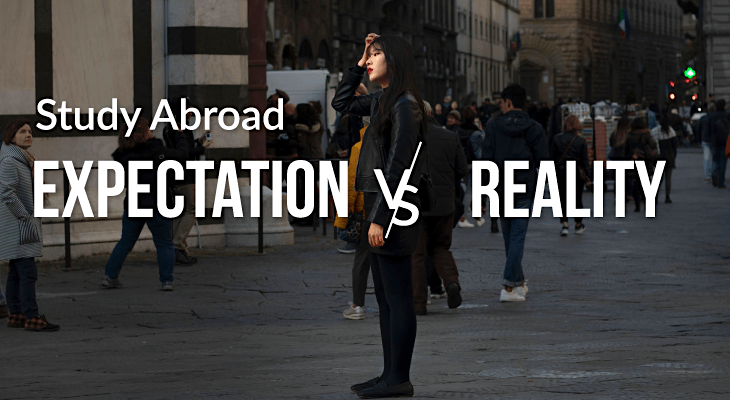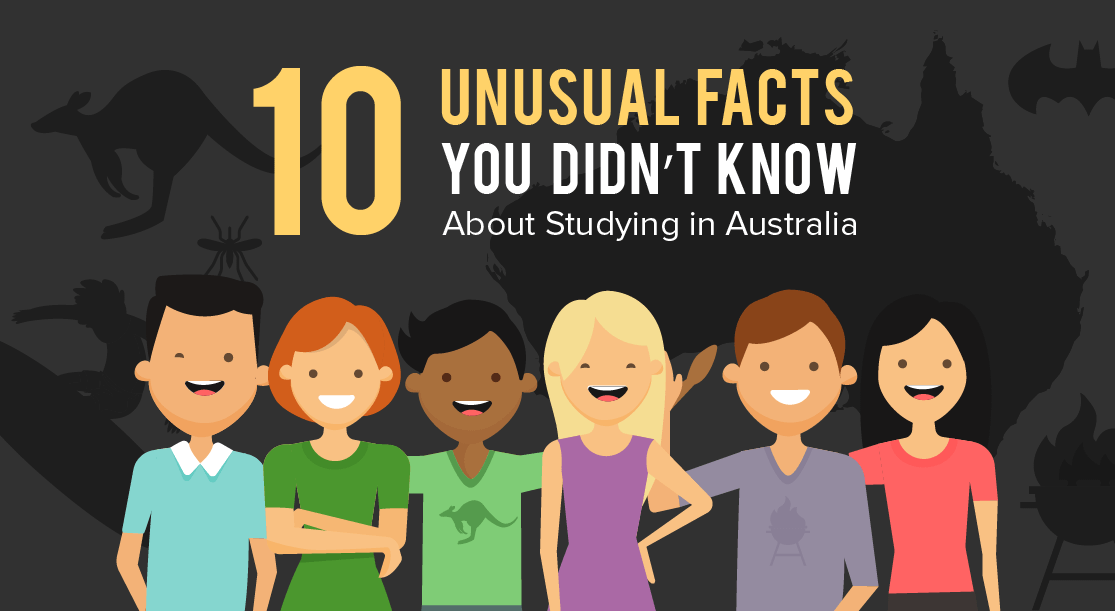Expectation vs. Reality of Studying Abroad
Are you planning to study abroad? Prepare yourself with some of the realities you need to know before you set yourself up with disappointment!
Published 15 Dec 2020

What do you see when you imagine yourself studying abroad? Are you on the next train exploring different cities? Hanging out at the coolest spots with an abundance of international friends? Or perhaps you’re charming the locals with your fluency in their language.
The truth is studying abroad can be vastly different from what you envision depending on the countries you’ll be going to.
Before you’re awash with disappointment when your expectations aren’t met, we lay down some of the common misplaced misconceptions plenty of students face when studying abroad and the actual realities of it.
Expectation #1: You’re going to make a ton of friends immediately

So you thought that making friends abroad is the same as making friends back home — “just head to orientation week and I’ll score lifelong friends!”
Unfortunately, that’s not always the case.
Unless you’re living in a dorm or a house full of convivial housemates, forging new relationships in a foreign country can be difficult, especially when there are language and custom barriers. Your classmates may already have their own cliques from their previous years or the students aren’t as friendly as you thought they’d be, but that’s okay! It’s part of the learning process you’ll need to go through.
While the first friendships you make are generally those who are immediately around you (e.g. coursemates and roommates), your circle of friends will eventually pan out! You’ll make more friends as you join clubs and societies or even attend social gatherings.
Whether you’re an introvert or an extrovert, being social can be challenging for any international student. So, get out of your comfort zone and interact with as many people as you can. Not only will you bond with various people, but this will also widen your social perspective and improve your cross-cultural communication skills.

Expectation #2: You’ll master a foreign language

The ideal experience of studying abroad would mean blending in with the locals as you smoothly charm them with your fluency in the local language.
But the truth is, unless your programme is conducted in a foreign language, you’ll likely be speaking an awful lot of English.
Being an international student in an international university means conversing in a language that everyone can understand, which is often English. And even if you mix with your local friends, chances are you’ll only pick up a few foreign phrases along the way.
However, that doesn’t mean you can’t master it at all. If you truly want to speak a foreign language fluently, you’ll need to mingle with the locals and just keep practising and speaking. Going to the farmers market in the outskirts and living with a host family are a few things you can do to fully immerse yourself in the local lifestyle.
Apply for university with EduAdvisor
Secure scholarships and more when you apply to any of our 100+ partner universities.
Start nowExpectation #3: You’ll get to party every week

Do you fantasise about the countless house parties and social gatherings you’ll be going now that you’re far away from the constraints of your Asian household? Lo and behold, this idea may not be appealing once your hangovers start to get in the way of your busy schedule.
From student union events to mixers, parties can be a fun way to de-stress when you’re up to your neck with assignments. However, excessive partying can take a toll on your health and performance in class. Not to mention, parties held outside of campus will definitely blow a hole in your pocket and you’ll end up having instant Maggie noodles for the rest of the week.
While the student party culture overseas is very much prevalent, it doesn’t mean you can’t have some fun just because you’re stuck with homework. Party moderately when you need some downtime and most importantly, learn to say “no” when you need to. Knowing how to balance between work and leisure will benefit you in the long run.
Expectation #4: Your days will be filled with sightseeing and exploring the city

This is particularly true when it comes to studying abroad. You will be doing a lot of exploring and discovering new city spots — but not in a way you think you’d be!
Most of your days will be spent commuting from one city spot to another via public transport. This means going to classes, getting groceries, finding new eateries and hanging out at cool spots with your friends. But if you’re thinking of visiting art galleries and doing cross-country trips while in Europe or the USA, spontaneity might be off the radar.
In reality, you’ll be in school most of the time and some days, you’ll just want to go back to your room, microwave some leftovers, bury yourself in bed and binge on Netflix. Your coursework will still demand a lot of you and you’ll find yourself preferring to spend your days resting rather than visiting museums and historical locations.
However, don’t feel frustrated that you don’t have the time to do the things you intend to do when studying abroad. Keep in mind that you’ll be staying in the country longer than those travelling so don’t feel pressured to do everything in one go. You have plenty of time to plan out trips during your studies abroad!

Expectation #5: You’ll discover more about yourself

We’ve all dreamt of an Eat, Pray, Love moment when travelling abroad. From visiting newfound places, trying new things and meeting amazing people, this is perhaps the most realistic expectation you’ll encounter.
The different culture, rules, heck — even the different position of the driver’s seat — can throw you off balance. But the more you explore the city you’re living in, the more you’ll learn new things about yourself.
You’ll realise that maybe you’re not such an antisocial person after all from the various people you meet. And that spending quality time alone will help you get to know the deeper aspects of yourself. Not to mention, being away from home means doing a lot of adulting by yourself.
The most important thing is that you get out of your comfort zone and immerse yourself in a variety of experiences, whether it’s travelling, volunteering with the local community or taking up a part-time job. You’ll slowly realise what your passions and interests are and what you can offer to the world.
Are your study abroad expectations up to snuff? The best way to avoid disappointment during your stay abroad is to have realistic expectations on the adventures you’ll have. Nonetheless, studying abroad is an experience worth having if it’s within your means. And even if your expectations are not met, the realities of it are not so terrible.






